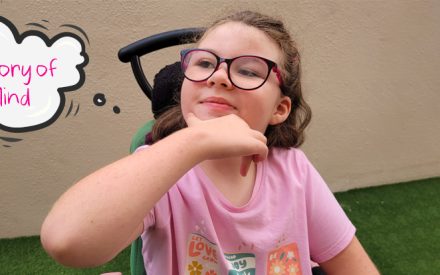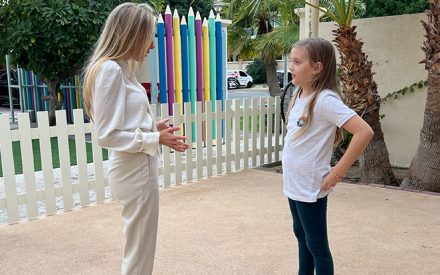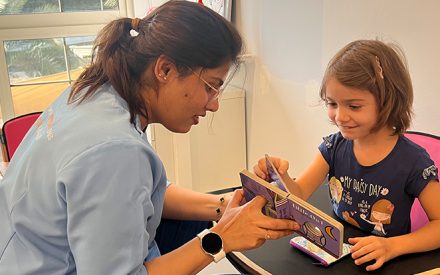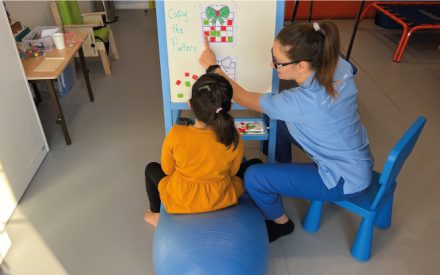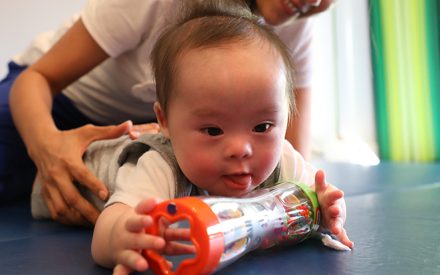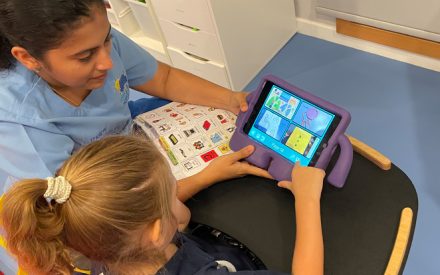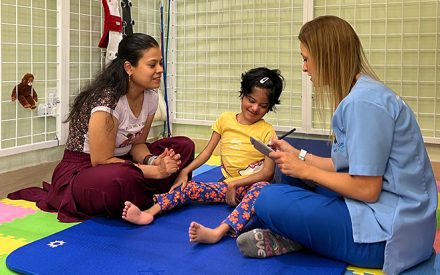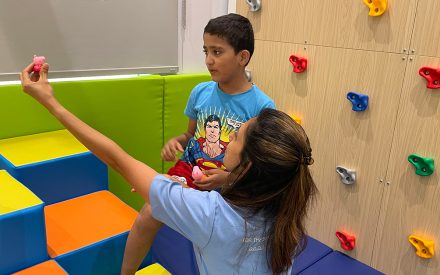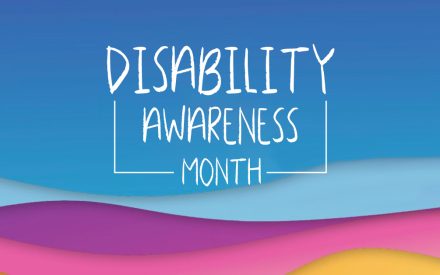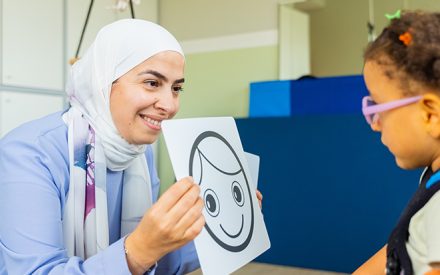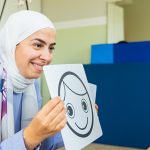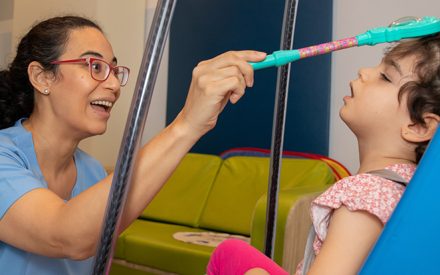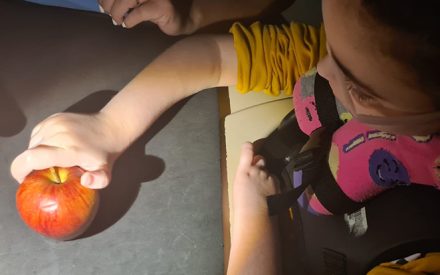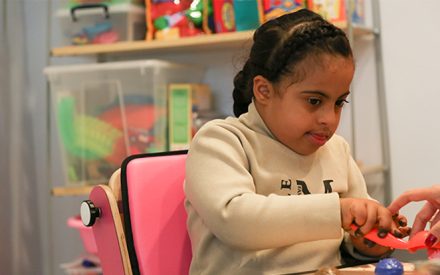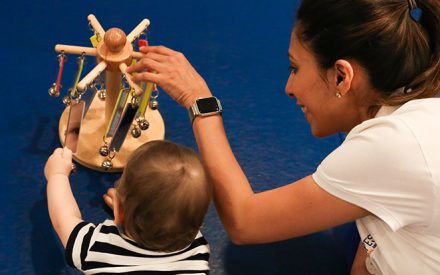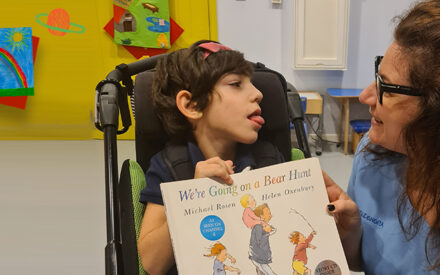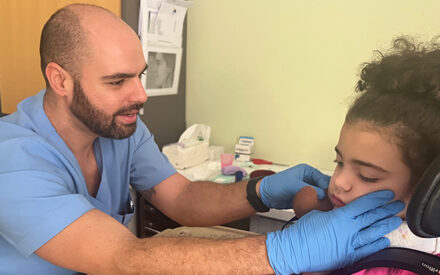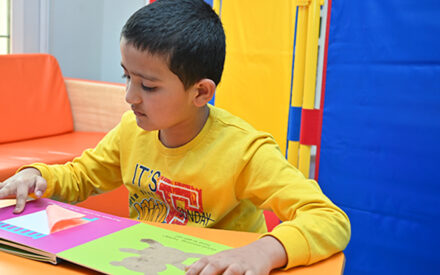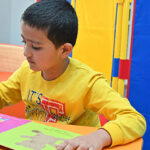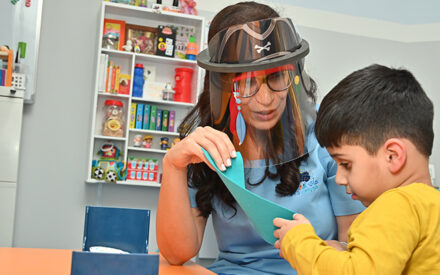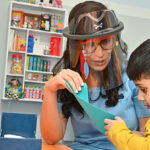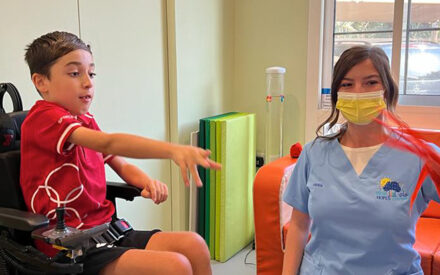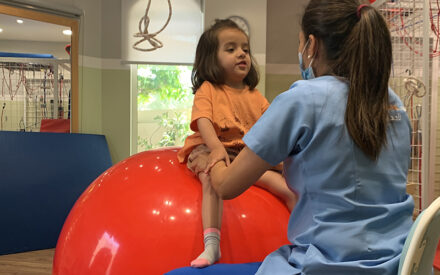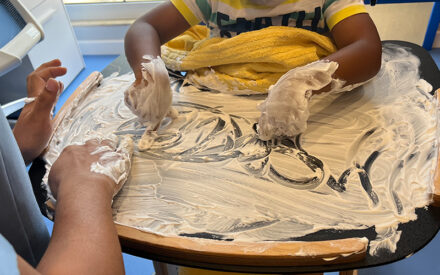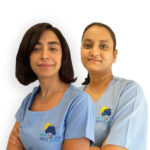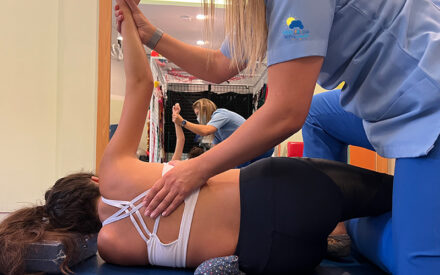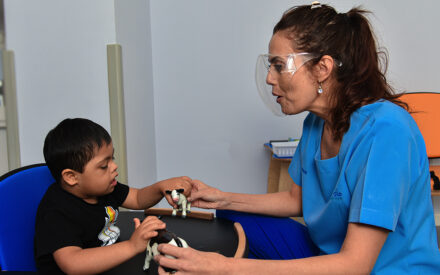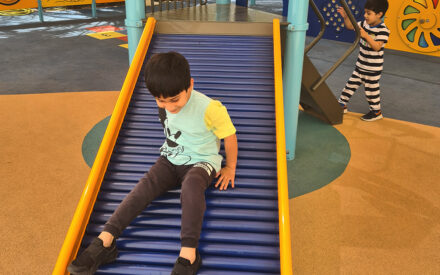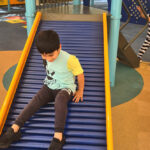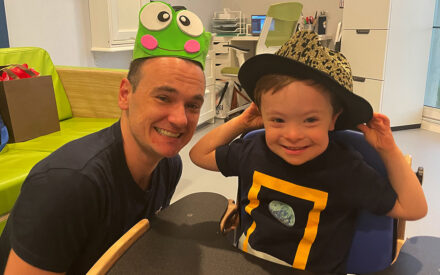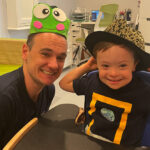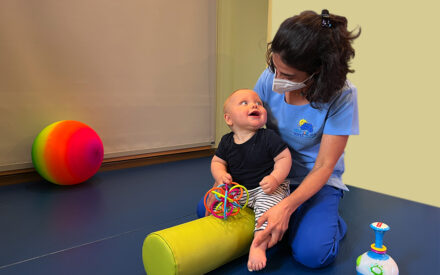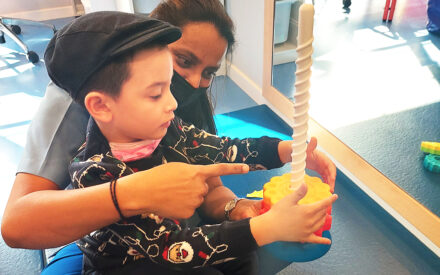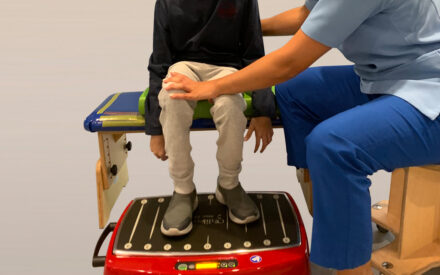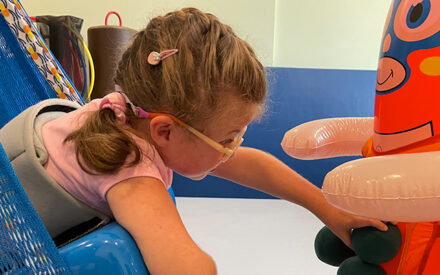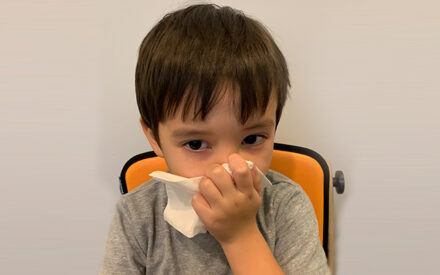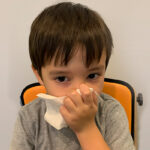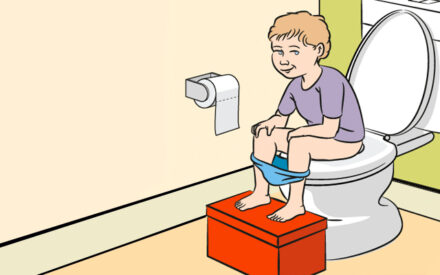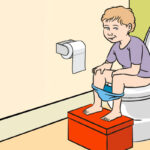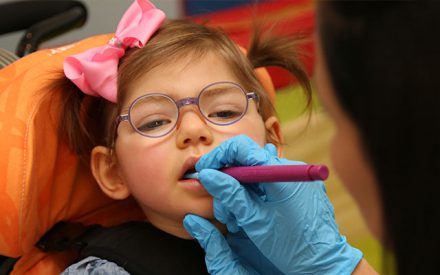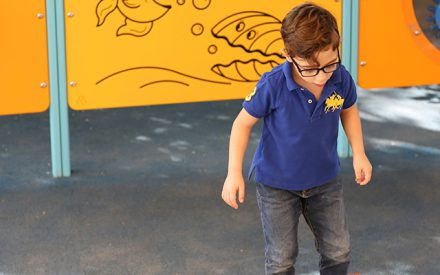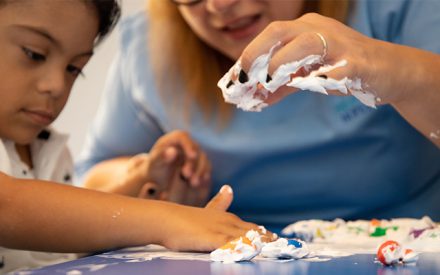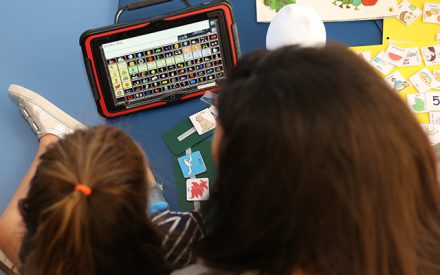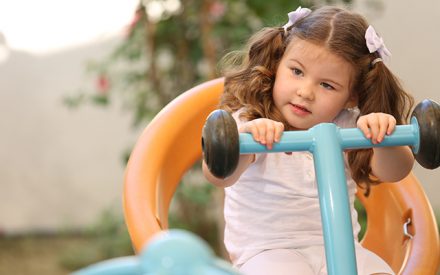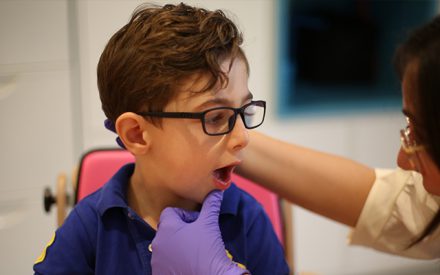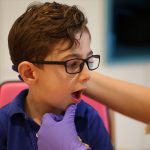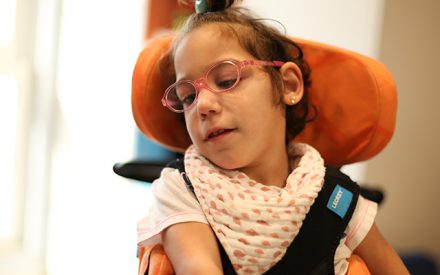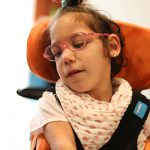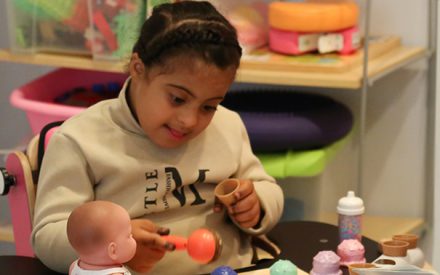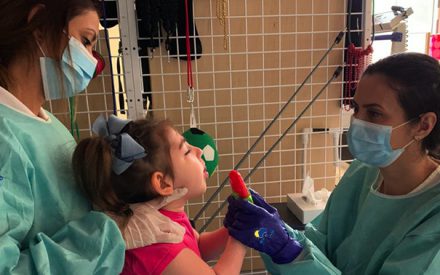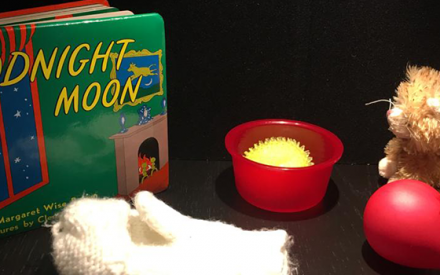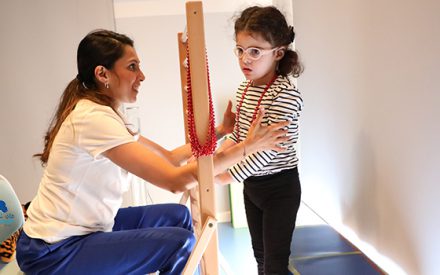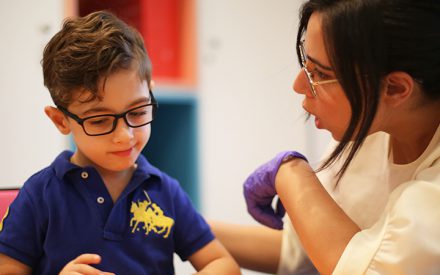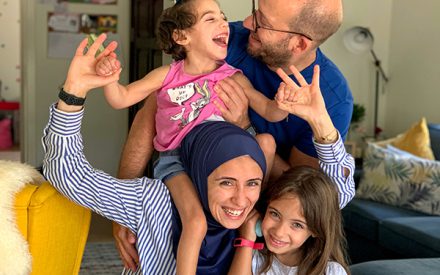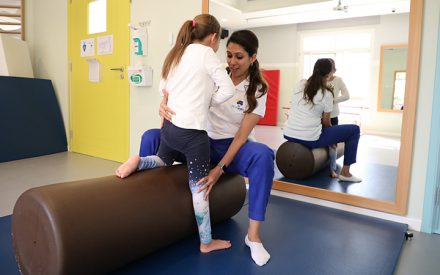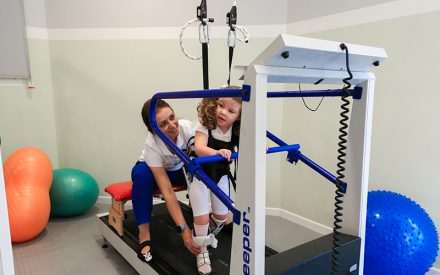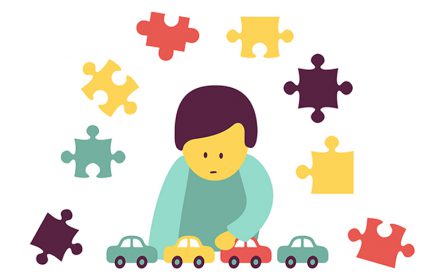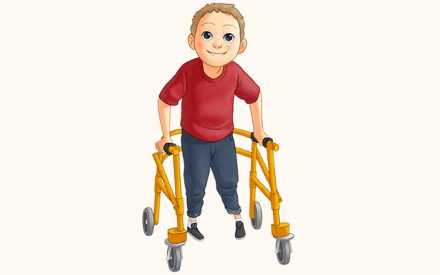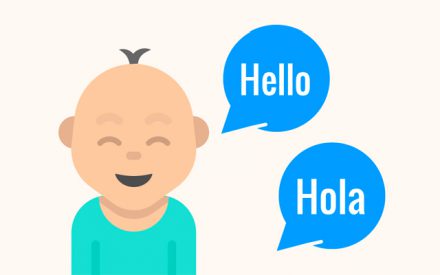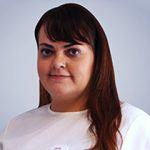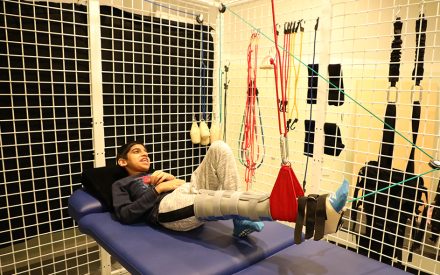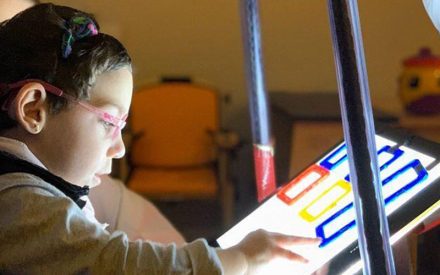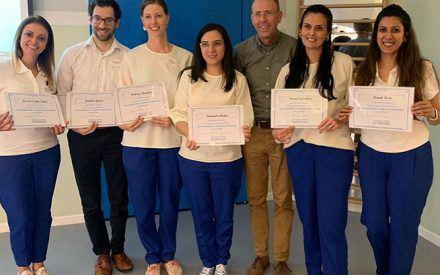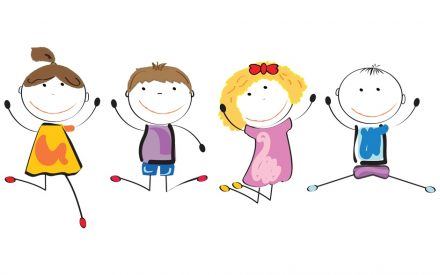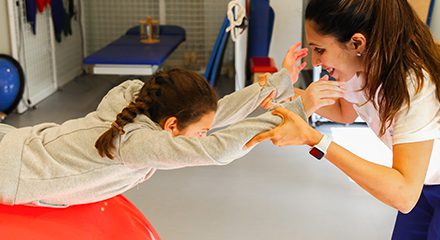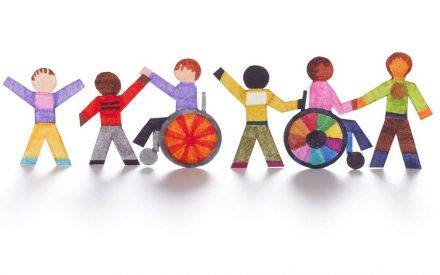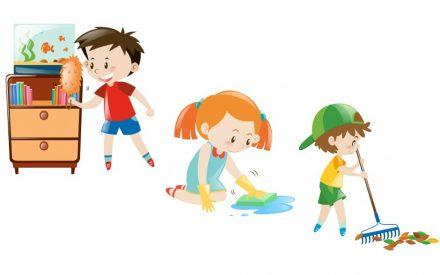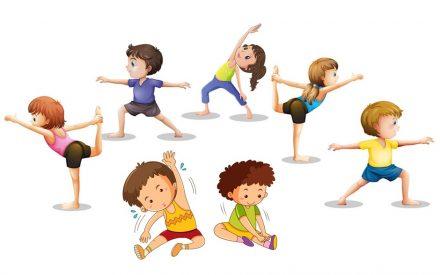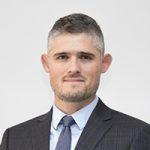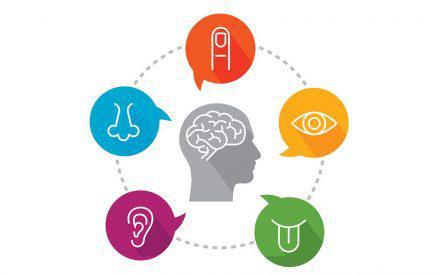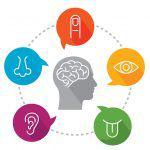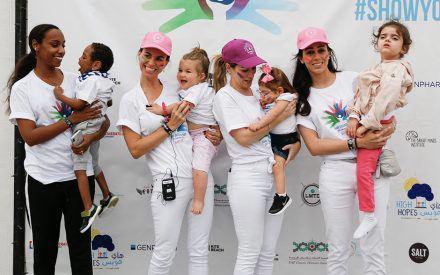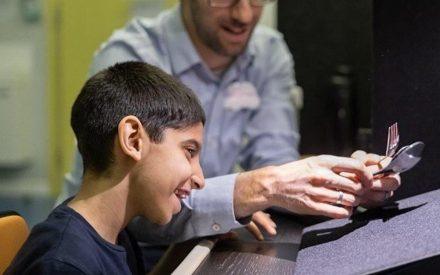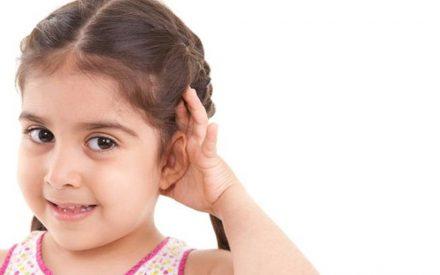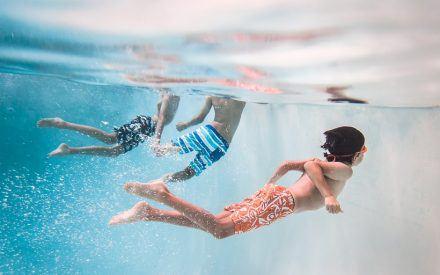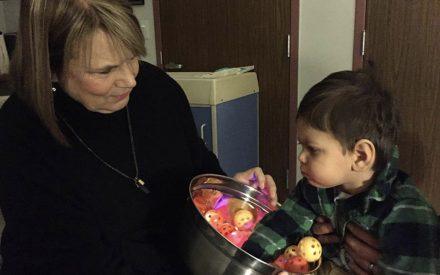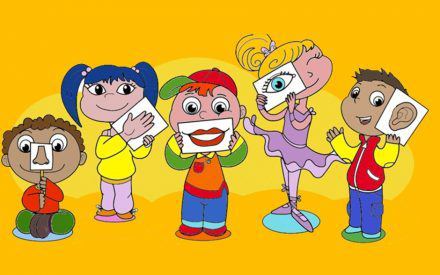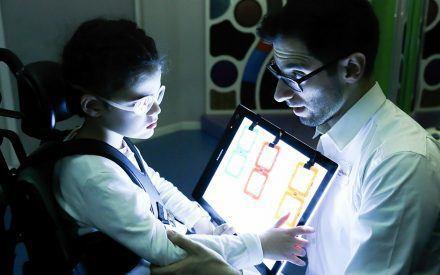Blog


Read what our experts have to say on relevant topics every month!
On the first of every month, one of our therapists publish an article here on their area of expertise and based on their knowledge, experience or research.
These articles are highly relevant for the parents of our super special ones and provide a reference point for parents who will be part of the High Hopes family in the future.


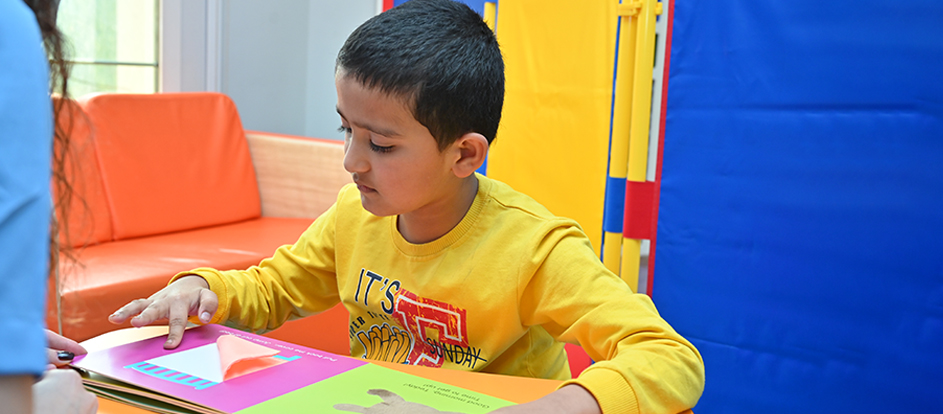
The Power of Books
Have you ever wondered about the magic that happens when you read a book with your child? How does that special time together shape their…
Read More
Sally Al Murr
Senior Speech and Language Therapist
DHA License Number: 00167781-002
Head deformities and head turn preferences- what to look for and how to prevent...
April 4th, 2024Latisha LewisIn the initial months after birth, it’s not unusual for parents to seek consultation with their paediatrician or a physical therapist due to concerns of…
Read MoreDoes your child ever cover their eyes and think they are invisible when playing games such as hide-and-seek? What about when you ask your child…
Read MoreMany parents struggle in finding the right balance to set boundaries for their child, while also giving their child the freedom to express themselves through…
Read MoreJanuary Journeys: A Speech Therapist’s Playful Guide to Learning and...
January 4th, 2024Samreen ZubairHey amazing parents and caregivers! As we plunge into January—the gateway to the year and the month that celebrates the International Day of Education—let’s transform…
Read MoreYou know how the holiday season is a magical time filled with love, laughter, and precious family traditions? Well, let’s keep it real as it…
Read MoreSupporting New Beginnings: The Neonatal and Pediatric Physical Therapist’s...
November 4th, 2023Sujata NoronhaThe journey to motherhood is a beautiful voyage filled with hope, expectations, and eager anticipation, as all parents eagerly await the arrival of their bundle…
Read MoreUnlocking Communication: How Augmentative and Alternative Communication (AAC) Empowers Children in Early Intervention In the intricate journey of child development, effective communication stands as an…
Read MoreNeurologic Pediatric Physiotherapy for Children with Neurological Diseases
September 4th, 2023Priscila Cunha SantosNeurologic pediatric physiotherapy plays a crucial role with the rehabilitation team in enhancing the quality of life of children with neurological diseases. In this blog…
Read MoreIntroduction Autism Spectrum Disorder (ASD) is a developmental disability characterized by persistent impairments in social communication and the presence of restricted repetitive patterns of behaviours,…
Read MoreWhat is Disability Awareness Month? The Disability Awareness Month is a month to raise awareness about disability rights and the challenges that people with disabilities…
Read MoreWhy is vision important in children? According to research, 80% of what children learn is through their eyes. Research also shows that up to 80%…
Read MoreMarch 2023 marked three years since COVID-19 was declared as a pandemic by the World Health Organization. Life in the UAE is back to normal,…
Read MoreApril is Cortical Visual impairment (CVI) Literacy Awareness Month. The road to literacy is different for someone with CVI than someone with a different type…
Read MoreChallenging Behaviors in Children with Down syndrome: An Overview for Parents
March 4th, 2023Viviane CappellariAs a parent, it can be difficult to understand and manage challenging behaviors in children with Down syndrome. As this is a common concern for…
Read MoreRett syndrome is a rare, progressive neurodevelopment condition that mostly affects females and is characterized by physical and cognitive developmental impairment (Gold et al, 2018)….
Read MoreAs the world observes the International Day of Education, we dedicate this month’s blog entry to the role of occupational therapists in helping super special…
Read MoreWhat happens when my kid swallows? Swallowing is divided into three stages. The first stage, the oral–preparatory, is a voluntary process hosted in the oral…
Read MoreFluency disorders: overview and treatment options
November 4th, 2022Imagine you are on the phone with your best friend and you want to share your experience at an event you recently attended. You attempt…
Read MoreIn speech and language therapy, sentence expansion is one of the most widely used building blocks that promotes language development. It consists of listening to…
Read MoreUnderstanding Duchenne Muscular Dystrophy On the occasion of the World Duchenne Awareness Day on 7 September, we shed light on Duchenne Muscular Dystrophy (DMD) through…
Read MoreWhat is Spinal Muscular Atrophy? Spinal Muscular Atrophy (SMA) refers to a group of rare, genetically inherited neuromuscular diseases that damage and kill specialized nerve…
Read MoreWhat is Fragile X syndrome? Fragile X syndrome (FXS) is a genetic disorder that affects a specific gene on the X-chromosome. This gene is called…
Read MoreChildren with progressive and non-progressive neurological impairment like cerebral palsy, muscular dystrophy, CDKL5 deficiency disorder, and myelomeningocele present abnormal and asymmetric muscle forces, which lead…
Read MoreThe American Speech-Language-Hearing Association (ASHA) defines Childhood Apraxia of Speech (CAS) as a rare neurologic sensorimotor speech sound disorder. A child diagnosed with CAS presents…
Read MoreHow can we best support siblings of autistic children?
April 4th, 20225 answers from the expert On the occasion of Autism Awareness Month, we invite Dr Georgia Pavlopoulou to share with us in this blog post…
Read MoreResearch proves that following daily routines such as bathing, feeding, changing clothes, and riding in a car significantly impacts children’s communication and language development, thus…
Read MoreWhat happens early lasts for a lifetime: Early intervention in children with...
February 4th, 2022Abir MassaadBabies are born ready to receive and capture all kinds of stimulation: auditory, tactile, visual, etc. This helps guarantee proper neuromotor development, the basics of…
Read MoreWhat is joint attention? You are at the park with your toddler when an airplane flies overhead. He/she runs to you, tugs your sleeve, points…
Read MoreThe secret to unlocking speech in early intervention
December 6th, 2021In our early intervention clinic, we frequently meet with families preoccupied with their infant’s lack of words, or limited vocabulary. Our speech and language therapists…
Read MoreWhole Body Vibration Therapy for kids with neurologic conditions
November 4th, 2021Priscila Cunha SantosVibration therapy (VT) is increasingly used to address coordination, strength, and flexibility, improving the performance of children and adults in functional activities. The clinical application…
Read MoreWhat is the SOS Approach to Feeding? The SOS (Sequential-Oral-Sensory) Approach to Feeding is an evidence based clinical program recognised internationally for helping children build…
Read MoreMeaning of Proprioception Have you ever walked into a dark room and searched for the light switch? The sensory systems your body relied on to…
Read MoreThe importance of nasal hygiene
August 1st, 2021As a Pediatric Speech Therapist, I am privileged to work with children in various educational settings, including schools and nurseries. I often notice children who…
Read MoreA child younger than 12 months has no control over their bladder and bowel movements. Between the ages of 12 and 18 months, they have…
Read MoreImportance of oral sensory and motor stimulation in tube-fed children
June 3rd, 2021Viviane CappellariA feeding tube is a medical device that is necessary when an individual cannot take food, fluids, or medication by mouth safely. This difficulty may…
Read MoreNeurologist Dr Patricia Hartlage defines ataxia as the condition of being unable to get a taxi: When arriving at an airport, one usually hails a…
Read MoreHand Dominance
April 1st, 2021Hand dominance or hand preference is a common topic of discussion in our Occupational Therapy sessions. Parents often ask us when a child should have…
Read MoreTaking notes in a book, using gestures to communicate, or pointing to pictures to express ourselves are forms of Augmentative and Alternative Communication (AAC). AAC…
Read MoreBehavioural strategies and tips to increase engagement in play and activities of...
February 4th, 2021As an adult, it is very hard to keep up with all daily tasks…completing all your chores at home, finishing that presentation at work, calling…
Read MoreThe role of therapeutic shoes for children with neurological disorders
January 5th, 2021Priscila Cunha SantosThe choice between orthopaedic shoes and lower limb orthoses for children with movement disorders is widely discussed in the clinical setting, leaving parents and caregivers…
Read MoreBecoming Verbal: The First Words of Children with Apraxia of Speech
December 6th, 2020Becoming verbal requires abilities that we normally take for granted such as being able to volitionally control one’s voice, and to move one’s oral structures…
Read MoreSupportive Seating In Complex Needs
November 5th, 2020Imagine sitting in a chair with a cushion that makes your right hip higher than the other, pushes your left leg further forward than your…
Read MoreStuttering in Preschoolers: when is the time to seek help?
October 8th, 2020When a child starts stuttering one of the questions that concerns parents is ‘what is the best approach? Wait or consult a speech therapist? Should…
Read MoreThe integrated Physical Therapy and Speech and Language Therapy teamwork for...
September 21st, 2020Priscila Cunha SantosThe demands of children’s neurological rehabilitation are related to autonomy and independence, and often involve contributions from several disciplines, such as the physical therapist, speech…
Read MoreReading to young children is one of the most powerful ways to help them engage with literacy, but children with CVI may only focus on…
Read MoreWhy Handwriting is Important in the Digital Age?
July 29th, 2020Are handwriting skills critical to your child’s success. In this digital age, children are swiping and tapping on screens before they are even able to…
Read MoreWhat got me started? I was first introduced to the Neuro-Developmental Treatment (NDT) Approach in the year 2006, when I was seeking knowledge in neuropediatrics…
Read MoreSpeech Sound Disorders: Frequently Asked Questions
July 1st, 2020“Children with Speech Sound Disorders (SSD) have gaps and simplifications in their speech sound systems that can make what they say difficult to understand.” (Bowen,…
Read MorePositive Parenting following the Triple P Approach
June 24th, 2020In April this year, High Hopes completed our first Stepping Stones Triple P parenting workshop series. This was accessed by families and professionals alike. In…
Read MoreDefying Gravity: Understanding and Treating Children with Low Muscle tone
June 17th, 2020Kunali DoshiThink about how it feels to hold your child when they are fast asleep versus when they are clinging to you. The more activation, the…
Read MorePartial body-weight support training (PBWS): a good strategy for walking...
June 10th, 2020Priscila Cunha SantosPartial body weight support (PBWS) training is an evidence-based approach for walking training of children with neuromotor disorders (Novak et al., 2020) that uses task-specific…
Read MoreThis article is part of a continuing series about Cortical Visual Impairment. We’ve got to stop thinking that there’s a group of people who have…
Read MoreImportance of Early Detection and Intervention of Autism Spectrum Disorder
May 28th, 2020Viviane CappellariEarly diagnosis of Autism Spectrum Disorder has generated big debates over the past decade. Some professionals find it inappropriate to “label” young children, when there…
Read MoreIf there was anything that I could use my magic wand on, to make it work better, it would be to treat Dystonia in Cerebral…
Read More“The limits of my language mean the limits of my world.” – Ludwig Wittgenstein According to “The Handbook of Bilingualism”, “Bilingualism – more generally, multilingualism…
Read MoreSensory Processing Disorder (SPD) occurs in each sensory system (Visual, Tactile, Olfactory, Auditory, Vestibular, Proprioceptive and Taste) and the manifestations may vary for each subtype….
Read MoreSpider Cage: An Engaging and Entertaining Rehabilitation resource
April 22nd, 2020Priscila Cunha SantosThe universal exercise unit, commonly referred to as the spider cage, is a structure used in neuropediatric rehabilitation to allow active and self-initiated movements and…
Read MoreHelping children with neurological conditions to speak aloud
April 15th, 2020When loudness “unlocks” clear speech Many children that we see at High Hopes have motor speech disorders as a result of brain damage before or…
Read MoreThis article is part of a continuing series about Cortical Visual Impairment. As many children are now spending time with their families at home, parents…
Read MoreTelesessions – Remotely Supporting our Families
April 1st, 2020In this time of global change, we are committed to continuing caring for our children and their families, hence the importance of the new healthcare…
Read MoreI know that this a is a bit late in coming (sorry about that Lynne, Aida and the therapy team; I’ve been a bit busy),…
Read MoreAs the famous American restaurateur Guy Fieri once said ”Food is maybe the only universal thing that really has the power to bring everyone together….
Read MoreProprioceptive input is my most commonly used sensory input during therapy. It can be used with a diverse population of children to calm, alert and…
Read MoreIntroduction The ball has been used in physical therapy for about 60 years. It is an indispensable tool for physical therapists around the world in…
Read MoreThe Intensive Interaction approach was developed in the 1980s by teachers Dave Hewett and Melanie Nind, at a special education service near London. They realized…
Read MoreIs it a good approach to improve the performance of children with cerebral palsy and other neurological conditions? A major concern in planning for the…
Read MoreCortical Visual Impairment affects the brain’s ability to process what the eyes are seeing. One of the central characteristics of CVI is visual complexity. Children…
Read MoreToilet Training – When Is The Right Time
September 1st, 2019Toilet training is a common concern for parents. When should is happen? How do you do it? Is your child ready? Are YOU ready? Read…
Read MoreThe Power of Chores: The importance of incorporating chores into a child’s...
August 1st, 2019Mary McCollum“In every job that must be done, there is an element of fun. You find the fun, and – SNAP – the job’s a game!”…
Read MoreWipe attack?! The title of this blog is inspired by a routine I learned from the father of a very special kid that goes “Attaaaack……
Read MoreParenting is tough work. Parenting a child with special needs deserves a gold medal, and it is safe to say that during the last month…
Read MoreStretching is the pleasant, low-hanging fruit of an exercise program. Feeling every breath in a serene yogic pose is, to some, more appealing than chasing…
Read MoreSensory Processing and Complex Needs
April 1st, 2019We are sensory beings. No matter which way you look at it, we need our sensory systems to make sense of ourselves and the world…
Read MoreWorldwide scientific researches, especially in the genetic field, have identified a considerable number of new disorders, or have labeled some of those that do not…
Read MoreWhat does the future look like for children with Cortical Visual Impairment?
February 1st, 2019Jonathan GravesThis blog is part of a series of articles on CVI. For more information, What is Cortical Visual Impairment? offers a good introduction to CVI….
Read MoreWhat did you say?! Helping children who are hard to understand
January 1st, 2019Speech is the most complicated motor act that children will ever learn. They must practice controlling more than 100 muscles at once to move their…
Read MoreSplashing leads to Success – How Aquatic Therapy can support children with...
December 1st, 2018Mary McCollumWhat is Aquatic Therapy? Aquatic therapy is treatment provided by an occupational therapist (OT) or a physical therapist (PT) in an aquatic environment. It is…
Read MoreThe Dubai hustle is demanding. It takes energy to climb the career ladder, keep pace with friends and raise upstanding little ones. Opportunities for rest…
Read MoreWhat is play? Play is engagement in an activity that is enjoyable. Play can look very different for each individual as we all have different…
Read MoreAs a Speech and Language Pathologist who works with young children, my goals often involve literacy or the precursors to literacy. Why? Because reading and…
Read MoreCortical Visual Impairment is the most prevalent form of visual impairment among children from developed countries.i CVI is unique among visual impairments because it is…
Read MoreOne of the scariest challenges mothers can face is not being able to feed their children. Having a child who is a picky eater has…
Read More“…the world is what your brain tells you it is, and the limitations of your senses sets the boundaries of your conscious experience.” (Coren, Porac,…
Read MoreWhen you look up developmental milestones for your child, you might see charts and graphs with lines or circles that intersect, or long lists of…
Read MoreWalking the style-bright streets of Saint-Honoré fashion district in Paris, a lighted sign catches your eye. You want to believe those words but, your rational…
Read MoreChildhood apraxia of speech (CAS) is a neurologically based, childhood speech sound disorder. CAS affects the precision and consistency of the movements which produce speech…
Read MoreVisual impairment generally refers to diminished sight, and it’s easy to assume that vision problems begin with the eyes. However, the eyes are just the…
Read MoreWhile several facilities offer all therapies under one roof, it is rare that clinicians coordinate therapeutic strategies across disciplines to deliver integrated, goal-directed care. Traditionally,…
Read More





